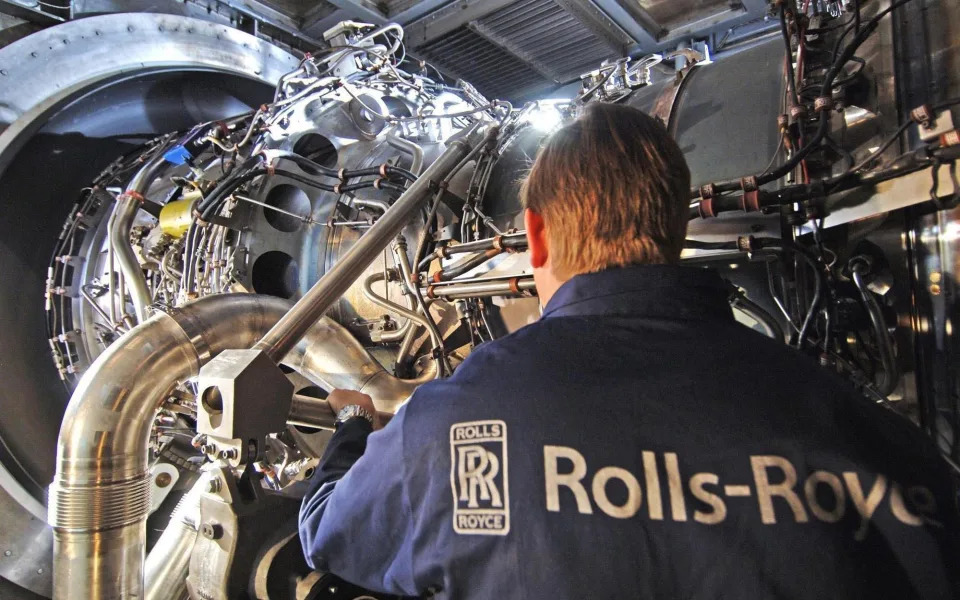Luke Barr
Sun, 22 October 2023

Rolls-Royce, the FTSE 100 engineering giant, is facing a potential legal claim from investors worth at least £350m after a bribery and corruption scandal wiped millions of pounds from the company’s value.
City lawyers are working with a group of investors seeking compensation from Rolls-Royce after the bribery allegations rocked the aircraft engine maker in 2017.
Shareholders are to claim that the company made misrepresentations to the market about the bribery scandal.
Rolls-Royce previously agreed to a £497m settlement with the Serious Fraud Office (SFO) in a bid to draw a line under the wrongdoing.
The SFO’s agreement with Rolls-Royce in 2017 covered “12 counts of conspiracy to corrupt, false accounting and failure to prevent bribery” across its aerospace and energy divisions.
It said the conduct spanned three decades and took place in countries including Indonesia, Thailand, India, Russia, Nigeria, China and Malaysia.
As part of its four-year inquiry into Rolls-Royce, investigators at the SFO examined claims that Rolls paid millions of pounds in bribes - or used middlemen to pay them - to win civil and military deals.
Allegations included Rolls paying a $20m (£13m) bribe in return for persuading Indonesia’s flag carrier, Garuda, to buy 700 engines.
It is understood Rolls has drafted in Slaughter and May to fend off the potential litigation, using the same set of lawyers that worked on the SFO agreement.
The company said it will “robustly defend” any class action, and stressed that it has not received any formal claim.
Proceedings are yet to be launched but it is understood allegations could be made against Rolls’ former chief executive John Rishton, as well as former board members including Michael Terrett, Sir Simon Robertson and Colin Smith.
Rolls was also found by the SFO to have falsified documents to conceal commissions in India and paid off an official working for Gazprom, Russia’s state-owned energy giant, to win a contract.
Under the terms of the so-called Deferred Prosecution Agreement (DPA), which at the time was the largest-ever fine of its kind in the UK, Rolls was able to account for its “conduct without suffering the full consequences of a criminal conviction”.
The company previously said it “apologised unreservedly” for the corruption, which also sparked investigations by regulators in Brazil and the United States.
Rolls warned in its last annual report that the DPA, which is a voluntary arrangement to avoid potentially tougher legal penalties, could spark potential claims “from current and former investors”.
Sir Brian Leveson, who oversaw the SFO investigation, said in 2017 that Rolls would have to “suffer the undeniably adverse publicity” from its DPA.
David Green, a former SFO director, said at the time that it allowed “Rolls-Royce to draw a line under conduct spanning seven countries, three decades and three sectors of its business”.
In Sir Brian Leveson’s 2017 judgment, he said Rolls’ conduct had “involved very senior” employees.
There has been a significant overhaul of the business in recent years, after the pandemic halted long-haul overseas travel, forcing Rolls to cut thousands of jobs and raise billions of pounds to survive.
Just last week the company announced it will cut up to 2,500 jobs in an effort to slash costs.
The move was announced by new chief executive Tufan Erginbilgic, who took over at the start of the year and said soon after that the company was a “burning platform”.
The engineer posted profits of £524m for the first half of the year, compared to a £111m loss for the same period in 2022.
The company also managed to slash its debt by £500m to £2.8bn.
A Rolls spokesman said: “Rolls-Royce today is a fundamentally different business. Rolls-Royce has zero tolerance for business misconduct. We have transformed our internal ethics and compliance procedures, that is why in January last year the Serious Fraud Office filed a notice releasing us from the UK Deferred Prosecution Agreement (DPA).”
No comments:
Post a Comment